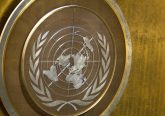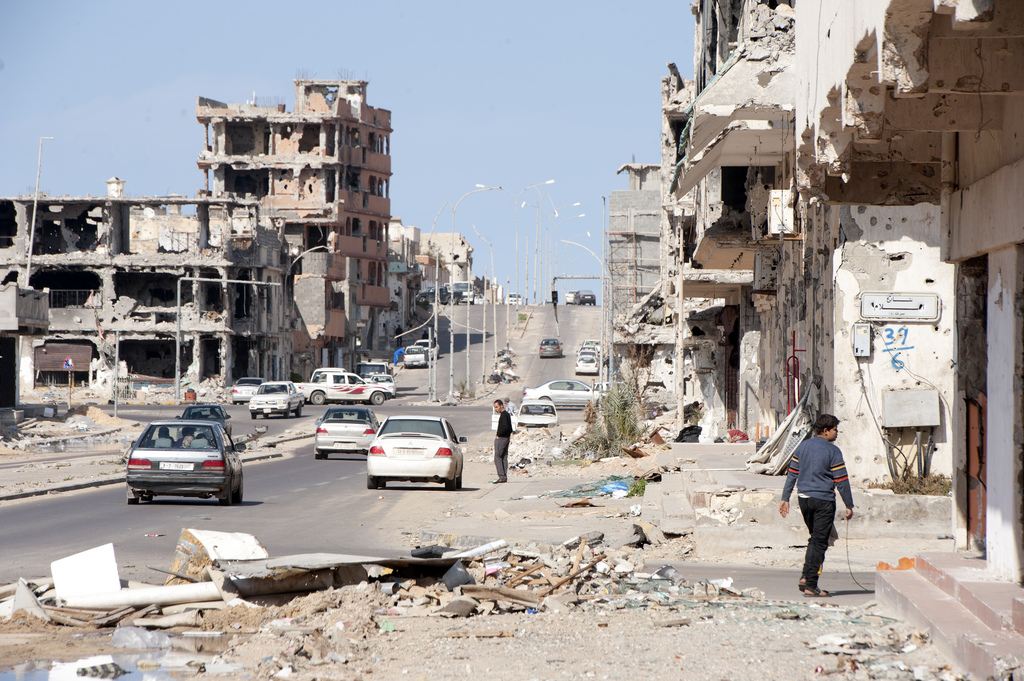The international community has failed Libya. While this may come across as a harsh verdict to the many organizations, governments and individuals, sometimes well-meaning, who since 2011 have been flocking in and out of the country in an attempt to secure its transition to state-hood, it is the case that many of those transactions remained confined to the surface of Libya’s socio-political transition. One still remembers the high hopes of 2011. Libya, with the largest oil reserves in Africa, was well-positioned to launch a new era unlike its neighbors, Egypt and Tunisia, who had mounting economic and structural challenges to address. In Egypt, between 2004 and 2010, there were more than 3,000 labor actions, between protests and strikes, mobilized against a baggage of old anti-democratic and intricately corrupt state structures in what came to be called the “deep state”.[i] Libya was deemed to have none of that “depth”. But did it? Is it true that Libya, with no known institutional history, possessed none of the complexities of its neighbors? This article will reflect on some of the aspects of that invisible complexity.
I argue that the failure of the international community is a result of a systemic and institutional oversimplification of that complexity which informed modes of engagement with conflict actors. This is based on interviews with over 100 Libyans between politicians, activists, civil society leaders, and individuals over the past three years in Libya, Egypt, Tunisia, Italy and the UK. The last round of meetings and interviews was in Tunisia in April 2015.
Demystifying the International Community
However, it is important first to unpack what we mean by the often amorphous “international community” with its astounding decision-making capacity. An IR (International Relations) term, it refers to a non-descript collective of governments, institutions as well as peoples around the world. The connotations of the term, however, are more dangerous than what it actually means because it implies a consensus without accountability and a solidarity either in support of or against something. What the “international community” wants is significant because there is a sanctity attached to it and so does what the “international community” rejects. What it is remains elusive and, at times, distracting and misleading. On Libya, the “international community” has never been less international and less of a community. What the term, in practice and in the particular case of Libya, has come to signify, in fact, is a collective of very particular state-related interests and alliances that are more aligned around shared fears and interests and less so, around principles. Italy’s recent flirting with a military intervention in Libya only happened after the ISIL killing of 21 Egyptian Copts and threatening to march on Rome. Prior to this, modes of engagement were confined to key sectors particularly the oil industry.
The USA espoused a similar approach of disengagement. In his address to the American people on March 28, 2011 and following the NATO intervention in Libya, President Barack Obama stated that while he acknowledged that “transition to a legitimate government that is responsive to the Libyan people will be a difficult task” and while “the United States will do our part to help”, “it will be a task for the international community and – more importantly – a task for the Libyan people themselves”.[ii] Libya was, in this manner, entrusted to its people under the gaze of a watchful but disengaged international community that slowly became synonymous with the following: a) Policy confusion and inaction on Libya, b) A flooding of funds to civil society organizations towards democratization and state building. A number of civil society leaders I interviewed related how they would receive funding offers amounting to thousands of dollars if they would launch particular initiatives in locations designated by the funder’s interests. They explained how they felt constantly forced to deliver projects that were tailored to the funder’s interests and little to what they perceived as needed by the people. Moreover, those interests shifted. At times, funds were allocated primarily to gender-related issues and at others, it was democratization. An unidentified percentage of the funds did not help establish foundations for a civil society. On the contrary, their influence was mostly divisive.
The state-building fetish unconsciously emptied Libya of a complex historical trajectory that has led to today’s fragmentation, as well as of the will of its people. This was particularly clear in the period leading to and after the Supreme Court declared the House of Representatives unconstitutional in November 2014. The US, Canada and six EU states issued statements but declined to take a clear position. Later, in January 2015, a UN-sponsored Libyan political dialogue concluded in Geneva without clear outcomes. The UN Special Representative of the Secretary General for Libya, Bernardino Leon, emphasized the positive spirit of the dialogue but advised against expecting quick results.
Engaging Tribal Leaders
Interventions to tackle the some 1,700 Non-State Armed Groups (NSAGs) currently active in Libya have thus far failed to actively engage tribal leaders. A meeting in Cairo is scheduled to happen this month but Egypt is far from an impartial party in the conflict; and securing trust is already a challenge within Libya, and between Libya and its neighbours. While they are deemed to have more power in the east than the west of Libya, they have decision-making capacity and may help broker legitimacy for the peace negotiations. A respondent from Tripoli said:
Tribes can help mend some conflicts but I don’t think they are powerful enough for peace.
Respondents from Benghazi and Fezzan believed that tribes could help bring an end to the conflict but that they are holding on old grudges and have not reached a point where they are willing to negotiate with one another. Gaddafi’s legacy is still there and has not been dislodged, at least within the tribal constituencies, and corruption is rife. One respondent described the situation as follows:
They all saw Libya and its treasures as a cake that they should have a piece of. They all wanted to compensate for what they were deprived of under Gaddafi, and saw it now the time for them to eat as much of the cake as they can. With Gaddafi, corrupt people were known but now it’s everywhere.
Bernardino Leon is not Adrian Pelt
The Libyan people had a strong sense of déjà vu regarding Bernardino Leon’s role as Special Representative and Head of the United Nations Mission in Libya (UNSMIL). They saw him as the new Adrian Pelt who would oversaw Libya’s 1951 constitution and launched Libya as a constitutional monarchy under King Idris. Pelt who was the UN Commissioner and a Dutch national, received guidance from the United Nations Council for Libya, which included a variety of nationalities. It had representatives from Egypt, France, Italy, Britain, Pakistan, the United States of America and only four Libyan members representing Cyrenaica, Tripolitania, Fezzan and the non-Arab minorities. It is important to also note how that period is perceived in Libyan consciousness: it is the closest they got to a Libyan nation and state until the Gaddafi coup in 1969. There seemed to be a consensus that it was then that Libya was a nation and a state in spite of persistent regional differences.
The times are different, however, and Bernardino Leon is not able to perform Adrian Pelt’s role. The set of interests around Libya today are very different from the Libya of 1951, which had not discovered oil yet and had not been through 42 years of dictatorship. In 1951, it was in everyone’s interest to gain independence, and for that to happen, differences were cast aside. The figurehead of King Idris also helped iron out grudges, and the international community, back then, represented by Adrian Pelt and country representatives helped broker that leadership while getting the consent of the Libyan public. At present, however, that leadership is nowhere to be seen and no one seems capable of gaining the trust of the people, no fear of colonization (British, French or Italian) and thus, no real incentives to unite and salvage Libya from disintegration. Libyans hoped (and still hope), that the Constitution Drafting Committee (CDC) may bring a solution, but internal differences and grudges within the organisation have left little hope for change.
ISIL and Islamist militancy may provide incentives for unity. However, unless a third party is capable of evolving leadership in Libya, one that can gain the trust of the public, Libya will continue to implode with grave repercussions in both the short and long-term. The international community has a role to play but unless that role is clearly defined and adequately informed of the deep power dynamics, it will continue to fail Libya as well as itself.
Notes:
[i] See Maher, Stephen. (2011). “The Political Economy of the Egyptian Uprising.” Monthly Review. Vol. 63(06). Available through: http://monthlyreview.org/2011/11/01/the-political-economy-of-the-egyptian-uprising/ [Accessed March 12, 2015].
[ii] See The White House. (March 2011) “Remarks by the President in Address to the Nation on Libya.” Available through: https://www.whitehouse.gov/the-press-office/2011/03/28/remarks-president-address-nation-libya [Accessed March 12, 2015].
Photo: Federica Mogherini and Bernardino Leon – Libyan municipalities dialogue meeting (photo credit: European External Action Service).








No Comment